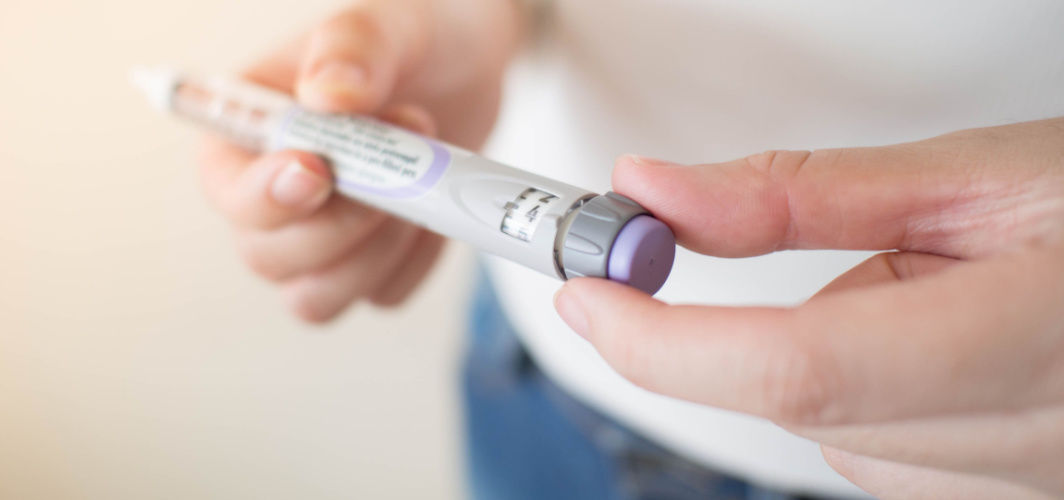Diabetes Management
Understanding Reactive Hypoglycemia: Causes, Symptoms, Prevention, and Treatment
2 min read
By Apollo 24|7, Published on - 01 August 2024
Share this article
0
0 like
.jpg?tr=q-80)
Reactive hypoglycemia is a health condition characterised by low blood sugar levels after eating, typically surfacing within two to four hours post-meal. This condition can manifest in individuals with or without diabetes and is often linked to excessive insulin release following carbohydrate-rich meals. Let's delve deeper into what causes this condition, the common symptoms, and how it can be prevented and managed effectively
Causes of Reactive Hypoglycaemia
While the exact cause of reactive hypoglycaemia remains unclear, several factors could play a part:
- Overproduction of Insulin: Consuming large, carbohydrate-rich meals might trigger an excessive insulin release, leading to a blood sugar drop.
- Underlying Medical Conditions: Prediabetes, hormonal disorders, or rare enzyme deficiencies could influence insulin regulation.
- Post-Surgical Impact: Certain gastric surgeries may alter food processing in the digestive system, increasing the risk of hypoglycaemia.
- Other Factors: Alcohol consumption, specific tumour types, and metabolic diseases may also contribute to its occurrence.
Signs of Reactive Hypoglycaemia
Symptoms typically appear within 2-4 hours post-meal and may include anxiety, confusion, dizziness, irritability, light-headedness, sweating, and extreme tiredness. Recognising these symptoms can help individuals seek timely medical attention.
Preventing and Treating Reactive Hypoglycaemia
Prevention Strategies
The key to preventing reactive hypoglycaemia lies in dietary and lifestyle changes:
- Small, Frequent Meals: Consuming smaller meals every three hours can help maintain stable blood sugar levels.
- Balanced Diet: Including a variety of foods in your diet while avoiding high-sugar and refined carbohydrates can be beneficial.
- Mindful Alcohol Consumption: If consuming alcohol, ensure you eat along to prevent blood sugar dips.
- Regular Exercise: Staying active can aid blood sugar regulation.
Treatment Options
Generally, reactive hypoglycaemia may not need medical treatment. However, in case of severe symptoms or underlying conditions, a doctor might recommend dietary modifications and medical evaluations.
Joining a comprehensive diabetes management programme like the Apollo Super 6 could be beneficial. This programme, designed by the expert doctors at Apollo, focuses on diet improvement, physical activity increment, and provides continuous support for managing diabetes more effectively.
Diabetes Management
Consult Top Diabetologists
View AllLeave Comment
Recommended for you
.jpg?tr=q-80)
Diabetes Management
Guava for Diabetes: Best Consumption Methods & Nutritional Info
With its low glycaemic index and load, Guava can be a beneficial addition to a diabetes-friendly diet. Consumption methods include eating the fruit raw, juicing, or making tea from the leaves. As with all foods, moderation is key. Combined with the personalized support from programs like Apollo Super 6, guava can make for a tasty and nutritious choice in managing your diabetes.

Diabetes Management
Assessing the Benefits of Beetroot in a Diabetes Diet
Thinking about adding beetroot to your diabetes diet? Its low GI and high fibre content certainly make it a beneficial choice! Whether you enjoy it raw in salads, roasted as a side dish, or blended into smoothies, beetroots can contribute positively to blood glucose management. Remember, a balanced diet and portion control are crucial to managing diabetes effectively.

Diabetes Management
What Is Insulin? Answering The Top 5 Frequently Asked Questions
The different types of insulin available for diabetes management are rapid-acting insulin which works quickly and short-acting insulin which is taken before meals to control blood sugar levels. Intermediate-acting insulin has a prolonged effect and is taken twice a day for basal insulin coverage during fasting periods while long-acting insulin provides a steady release of basal insulin for 24 hours to maintain stable blood sugar levels, and pre-mixed insulin that combines short-acting and intermediate-acting insulin.
Subscribe
Sign up for our free Health Library Daily Newsletter
Get doctor-approved health tips, news, and more.
Visual Stories

8 Fruits That are Incredibly Healthy for Diabetes
Tap to continue exploring
Recommended for you
.jpg?tr=q-80)
Diabetes Management
Guava for Diabetes: Best Consumption Methods & Nutritional Info
With its low glycaemic index and load, Guava can be a beneficial addition to a diabetes-friendly diet. Consumption methods include eating the fruit raw, juicing, or making tea from the leaves. As with all foods, moderation is key. Combined with the personalized support from programs like Apollo Super 6, guava can make for a tasty and nutritious choice in managing your diabetes.

Diabetes Management
Assessing the Benefits of Beetroot in a Diabetes Diet
Thinking about adding beetroot to your diabetes diet? Its low GI and high fibre content certainly make it a beneficial choice! Whether you enjoy it raw in salads, roasted as a side dish, or blended into smoothies, beetroots can contribute positively to blood glucose management. Remember, a balanced diet and portion control are crucial to managing diabetes effectively.

Diabetes Management
What Is Insulin? Answering The Top 5 Frequently Asked Questions
The different types of insulin available for diabetes management are rapid-acting insulin which works quickly and short-acting insulin which is taken before meals to control blood sugar levels. Intermediate-acting insulin has a prolonged effect and is taken twice a day for basal insulin coverage during fasting periods while long-acting insulin provides a steady release of basal insulin for 24 hours to maintain stable blood sugar levels, and pre-mixed insulin that combines short-acting and intermediate-acting insulin.


